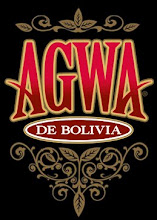
Mittwoch, 25. März 2009
Donnerstag, 19. März 2009
Elektronisches Glück im Konzert mit Klaus Schöpp Freitag 27.03.2009

ELEKTRONISCHES GLÜCK
im Konzert mit Klaus Schöpp
Freitag 27.03.2009 - warm up 21 Uhr - Konzert ca. 22 Uhr - (Eintritt: frei)
Location: Tupac Amaru
Prinzenallee 38 Ecke Soldiner Straße – 13359 Berlin
Bus M27 o. 255, U-Bahn Pankstr., S-Bahn Bornholmer Str., Tram 13 o. 50
Zur Veranstaltung:
„Die Zeit ist alles, der Mensch ist nichts mehr, er ist höchstens noch die Verkörperung der Zeit.“
(Karl Marx, Das Elend der Philosophie. 1847)
„Dürft ich zum Augenblicke sagen, verweile doch, du bist so schön.“ Mit diesen Worten beschrieb Goethe das Streben seines seines Faust nach Glück. Diese und weitere Gedanken beschäftigten auch den Komponisten und Softwareentwickler Marc Lingk bei der Entwicklung seines TimeFreezers und seinen musikalischen Werken. Der TimeFreezer ist eine Musiksoftware, die es ermöglicht, Klänge, so lange es uns gefällt, festzuhalten und in Echtzeit wiederzugeben.
Die Gruppe „Elektronisches Glück“, bestehend aus ihren Gründungsmitgliedern Marc Lingk und Steve Transcoder bringt den TimeFreezer am 27. März 2009 im Tupac Amaru gemeinsam mit Klaus Schöpp zu Gehör. Der studierte Flötist hatte das Duo bereits in der Vergangenheit mehrfach musikalisch unterstützt.
Die Band verbindet mit Hilfe des TimeFreezers synthetische und akustische Klangerzeuger und bringt so Veränderungen der Zeitstrukturen in der Moderne auf eine magisch anmutende Weise dem Publikum nahe.
Das Konzert im Tupac Amaru bildet den musikalischen Rahmen und Abschluss des an diesem Abend stattfindenden Galerierundganges der Kolonie Wedding, einem Zusammenschluss von Kunstraumprojekten im Soldiner Kiez (www.koloniewedding.de).
Wer an einer innovativen musikalischen Interpretation der Zeit interessiert ist, sollte sich Zeit für das „Elektronische Glück“ nehmen.
TimeFreezer http://www.timefreezer.net/ ELEKTRONISCHES GLÜCK http://www.timefreezer.net/eg

Labels:
KOLONIE WEDDING,
programm,
VIDEO
Kalter Kaffee ! In der Mikorvelle nach ich kalten kaffe warm. (Poetry, Music, Movies) March 29.03.09
Dienstag, 10. März 2009
13. März 2009 Tupac Amaru: Wer braucht das? mit Konrad Endler

Ab 19:30 eintritt frei
WBD? der Lesebühne auf'm Wedding mit Christine Danne, Holger Haak, Sami u.a.
Konrad Endler ist regelmäßig auf radioEins zu hören. Also nicht er selbst, aber sein alter ego Claus Cörper mit eigenen Nachrichten "Im Visier". Ansonsten ist der häßlichste Junge der Stadt bei den Surfpoeten. (www.hortkind.de ; www.surfpoeten.de)
Mittwoch, 4. März 2009
Ch´alla Party Aymara and Quechua People ab 20:00 06.03.2009

Bolivian Party with Coca-Liquor to banish the winter
ab 20:00 06.03.2009
The Ch’alla is one of the most common rituals in Andean life. It can be seen in all parts of the Andean region where there is a significant settlement of Quechua or Aymara people, although it is most common in the central Andes (that is to say, the highlands of Peru and Bolivia).
Hans van den Berg gives the Spanish translation of the Aymara word Ch’alla in his Diccionario Religioso Aymara as ‘aspersion [sprinkling]‘ (van den Berg, 1985:48). He goes on to define the term thus:
En muchas oportunidades los aymaras realizan la ceremonia llamada ch’alla. Consiste en derramar un poco de alcohol que se va a tomar sobre el suelo en honor de Ia pachamama; o en asperjar alcohol sobre los implementos que se usa en los ritos o sobre un animal que se va a ser sacrificado. Tambien se realiza la ch’alla de las chacras por motivo de la siembra o en algun momento durante el periodo del crecimiento de las plantas, en el estreno de herramientas de trabajo, cuando se hacen los cimientos de una nueva casa y durante un viaje, cuando se pasa por una cumbre. (van den Berg, 1985:49)
This definition is echoed in many other ethnographies of the cultures of the Andean region. I aim to deal with the phenomenon of the ch’alla in the urban setting, rather than in the rural sphere, about which various works on ritual have already been published.
When in La Paz, Cochabamba, and other large cities in Bolivia, it is easy to see the extent to which the ch’alla is still practised. One need only sit in a bar for a matter of minutes before observing how, before drinking, those present almost absentmindedly tip their glass or bottle to let some liquid spill on the floor, or alternatively dip the tip of their index finger into the glass and then flick the liquid away to the floor. The action is occasionally accompanied by a mumbled prayer to Pachamama, which can be offered on behalf of the group, but this is fairly rare in an informal urban setting, unless the ritual is taking place as part of a larger ‘mesa ritual’.
The word ch’alla has also been ‘hispanized’ to turn it into a verb challar which is used in Bolivia to denote the action of performing ch’alla, and also on occasion, meaning ‘to bless’ (although this usage is used only in relation to Pachamama, and never with reference to the Christian religion).
This simple gesture is the basic element common to all ch’alla rituals; whether performed on a grand scale, or in a home, or indeed, in a bar. The practise is so common and natural for so many urban (or urbanised) Bolivians that many people do not realise that they are performing the action. The arguments for whether rituals are conscious or unconscious actions will follow in a later section. But whether personal or public, innate or learnt, sober or drunk, it is certainly predominently true to say that “Pachamama, Mother Earth, is always toasted before any Andean drinks a beverage”
(Bastien, 1978:197).
found at: http://meish.org/
http://www.youtube.com/watch?v=6E-mi1ImiZg
(((P)))
Abonnieren
Posts (Atom)






